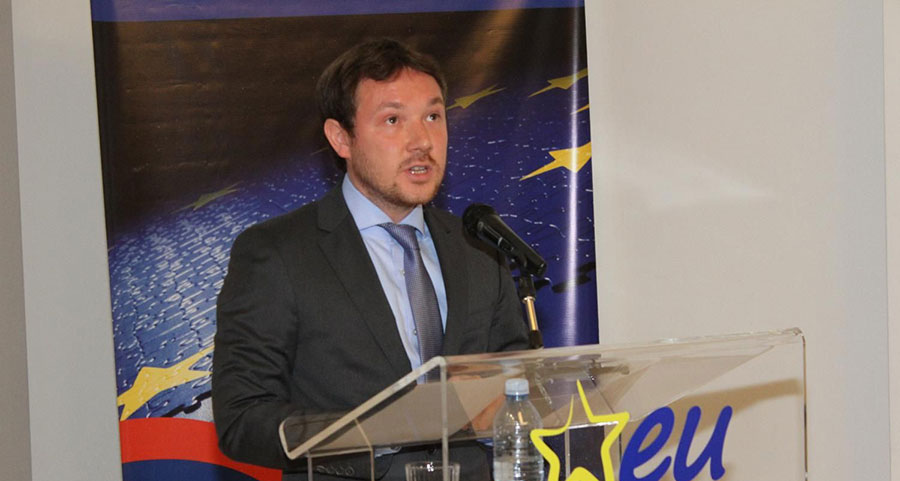Nicolas Bizel of the EU Delegation said Serbia had made progress in the process of inclusion, adding that many municipalities have established social services they hadn’t had a decade ago. The Roma, apart from education, should be given an opportunity for employment, he added.
Appearing on N1 TV, Bizel said that the process of inclusion was further aggravated by the migrant crisis. Due to increased number of people in need of assistance, he explained.
Since 2007, the EU has granted Serbia over EUR200 million for social policy and inclusion advancement and over EUR80 million for migrants. Also, it has just completed the project Together We Can Do More, funded with EUR5.4 million.
Bizel said the donated money was aimed at advancing inclusion. As far as that segment goes, we have yielded tangible results, he said.
“Progress can be seen in municipalities which have established social services and are now offering support for persons with disabilities or the elderly. A decade ago, this wasn’t the case,” he said. “Not every municipality has such services in place, but many have, and that is the path we should follow,” Bizel said.
Speaking about the Roma, he said they should be integrated into the education system. “Also, they should be given an opportunity for employment,” he said. Education and employment policy should be developed and approached to in parallel, Bizel told N1.
With EU support, 75 schools in 43 municipalities across Serbia now teach the Roma language and culture. Some 3,000 pupils say they are interested in taking the course in Roma language; Bizel said and added that the goal was to increase that number even further.
“We want the entire Roma population to benefit from education. Together with Serbian Government, the EU is working to extend support for education to even more people,” Bizel said.
Asked to describe to which extent the migrant crisis had aggravated the process of inclusion, Bizel said that the issue of inclusion was a difficult one not only for Serbia, but also for the EU. But, he added, the EU and Serbia can work out a solution to this problem together.
“The majority of migrants does not wish to stay here, but are trying to reach Western Europe. But if they want to stay here, Serbian authorities should grant them access to education, accommodation, care… We are working to find a solution for people who are transiting through the country, while waiting for a more durable one,” he said.
Bizel said Serbia managed the crisis rather well, even better than some of the EU Member States. “There are around 4,000 migrants in the country. Serbian authorities are helping those people, but it is worth noting that our focus is not on migrants only, but also on affected municipalities and the local people.”
He said that migrants should be included in other activities, apart from education – they should not sit idly in reception centres. “Perhaps they should be offered job opportunities. There are many hairdressers in the reception centre in Krnjaca. They (migrants) have certain skills; some of them could bring certain benefits to the country. Migration can be seen as something that can add a positive value.”
Speaking about social inclusion in Serbia in general, he said the issue was at the top of EU’s priorities. “Serbia should make sure it has enough administrative capacity to establish a social and security system sustainable at both the national and local level. Yes, progress is being achieved, but there is still work ahead.”
Asked to comment on whether there has been any change in Serbia since it had opened chapters 23 and 24, Bizel replied that change can indeed be noticed.
“The society is functioning; people have faith in the good system, in the fight against corruption. They believe in good systems of justice and security, and have faith in border control and the observance of rights. We have established good cooperation with Serbia when it comes to crisis management. Border control and international cooperation have also improved,” he said.
Bizel added that it was necessary to ensure efficiency and independence of justice. “It is a time-consuming process, it takes patience and time, and its results cannot be visible overnight, but together we are working to make it happen,” he said.




